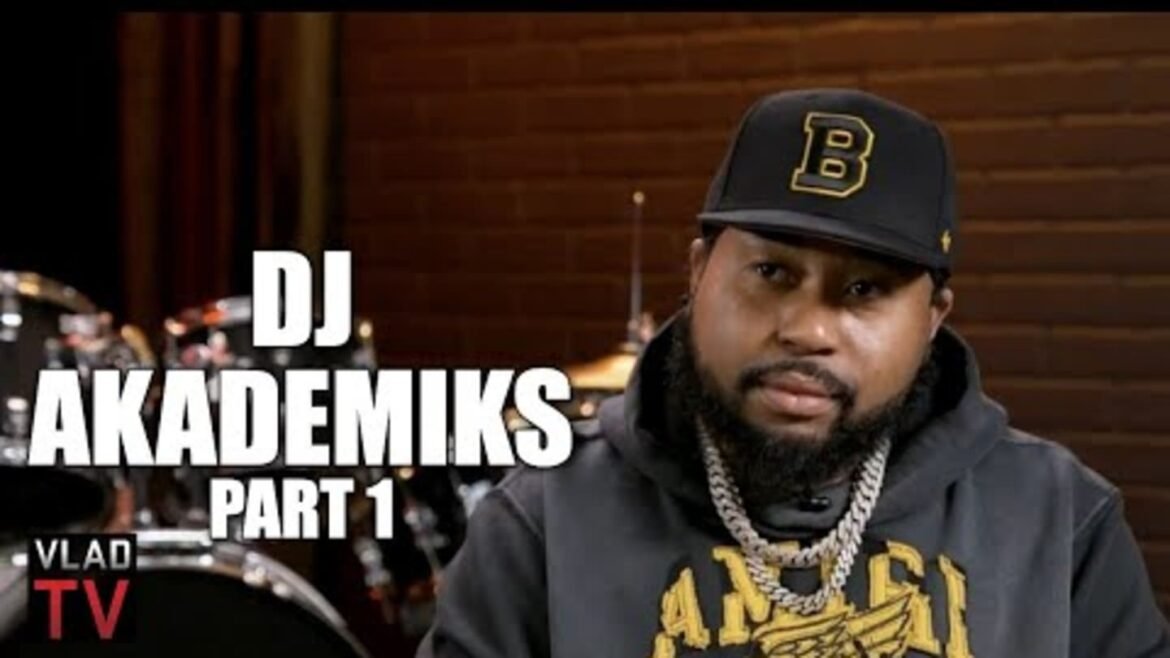In a recent discussion on Vlad TV, DJ Akademiks delved into the complex web of tensions surrounding three of hip-hop’s biggest names: Kendrick Lamar, Drake, and J. Cole. The conversation highlighted Kendrick Lamar’s recent lyrics and the underlying friction that has intensified within the hip-hop community.
Akademiks wasted no time addressing Kendrick Lamar’s apparent lack of respect towards his peers, tracing it back to his infamous “Control” verse. Since then, Kendrick’s disregard for his fellow artists has become increasingly evident, sparking tension and division.
“He straight up dissed Drake and J. Cole, man! Talking about “sneak dissin'” and burying dogs in the pet cemetery? That’s shots fired, no doubt. But here’s the thing, Kendrick’s been disrespectful to these guys since “Control”. Remember when he claimed the throne and dismissed everyone else as newbies? That ain’t cool.”
A significant portion of the discussion centered around J. Cole’s role in attempting to mediate between Kendrick Lamar and Drake. Akademiks pointed out that J. Cole’s efforts to play peacemaker have seemingly backfired, exacerbating the existing animosity between Kendrick and Drake. Despite J. Cole’s intentions, Kendrick’s lyrics aimed at both Drake and J. Cole themselves suggest a deep-seated discord that transcends any attempts at reconciliation.
“But you know who I blame for this mess? J. Cole. He’s been playing peacemaker, trying to keep the peace between Kendrick and Drake, but it ain’t working. Kendrick ain’t buying it. And let’s talk about that supposed collab album between J. Cole and Kendrick. Never happened! Just like Kendrick’s Black Hippy album.”
One particularly intriguing aspect raised by Akademiks was the speculation surrounding a collaborative album between J. Cole and Kendrick Lamar. The mere existence of such a project, albeit unmaterialized, hints at a potential catalyst for the rift between the two artists. Akademiks proposed that Kendrick and Drake may have been competing for “custody” of J. Cole’s loyalty, symbolizing a deeper struggle for dominance within the hip-hop landscape.
“It’s like Kendrick and Drake were fighting over custody of J. Cole’s loyalty, and Kendrick ain’t happy about it. Remember when Drake called him out on “Control”? Kendrick ain’t forgetting that. And now J. Cole’s trying to make it all Kumbaya, but Kendrick’s having none of it. He’s like, “Nah, forget that noise.”
Akademiks painted a picture of strained relationships and unresolved tensions. Despite J. Cole’s efforts to foster unity, Kendrick’s persistent disdain and Drake’s ambiguous stance have only served to further fracture the hip-hop community. The metaphorical tug-of-war for J. Cole’s allegiance underscores the intricate power dynamics at play, with each artist vying for dominance and recognition.
In conclusion, DJ Akademiks provided valuable insights into the intricate dynamics between Kendrick Lamar, Drake, and J. Cole. His analysis shed light on the underlying tensions and power struggles that continue to shape the hip-hop landscape. As the saga unfolds, it remains to be seen whether reconciliation is possible or if the rift between these titans of hip-hop will only deepen with time.


